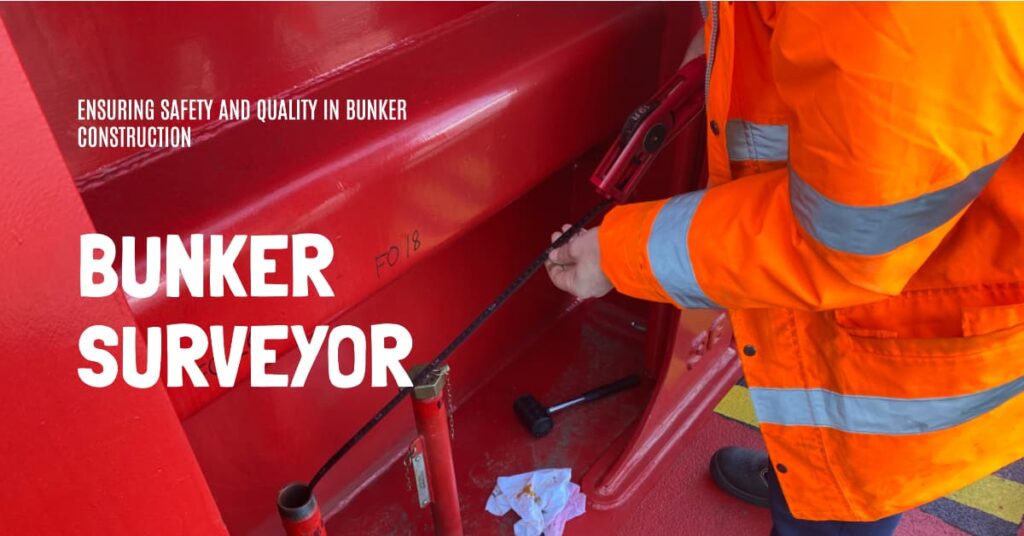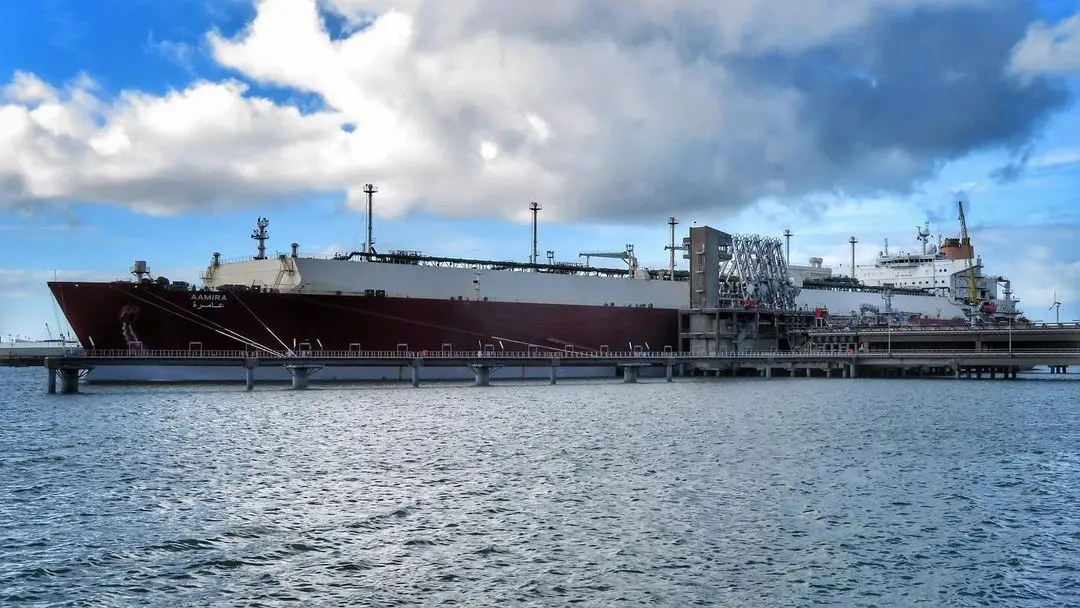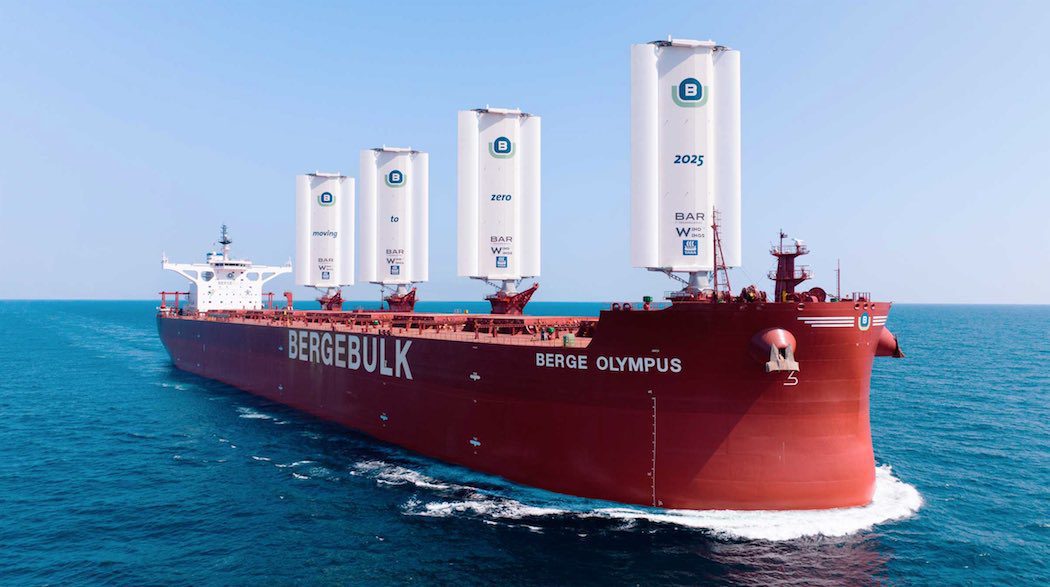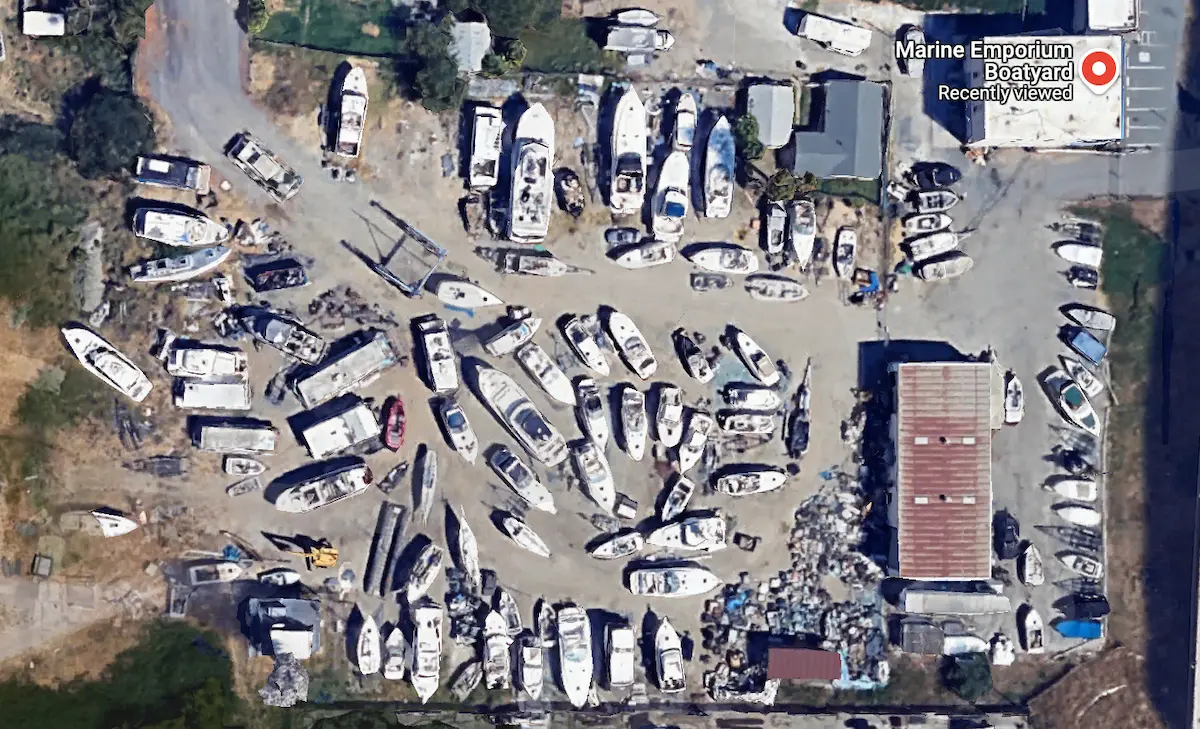Bunker surveyors play a critical role in the shipping industry. They are responsible for ensuring that the fuel oil (bunker fuel) delivered to a vessel from a supplier matches the quantity and quality agreed upon.
The bunker surveyor acts as an independent third-party engaged to witness a bunker quantity survey (BQS) operation and ensure compliance with bunker delivery procedures.
The primary responsibility of a bunker surveyor is to conduct a BQS operation. This involves taking ullage measurements in the bunker barge and the receiving ship’s tanks before and after fuel transfer. The surveyor then calculates the quantity of fuel delivered using ullage measurements, temperature corrections, and the fuel’s density.
The bunker surveyor’s role is to ensure that the fuel delivered matches the quantity and quality agreed upon and that the bunkering operation is carried out safely and efficiently.

Who is a Bunker Surveyor?
A bunker surveyor is a professional who is responsible for conducting bunker surveys. These surveys are critical in the maritime industry as they help prevent bunker delivery losses. Bunker surveyors are mainly employed to independently check and determine the barge delivered quantity and the vessel received quantity. They are also responsible for ensuring that the fuel quality is in line with industry standards.
Bunker surveyors must have a thorough understanding of the maritime industry, including the different types of vessels, fuel types, and fuel quality standards. They must also have excellent communication skills, as they will be working with a wide range of stakeholders, including vessel owners, fuel suppliers, and port authorities.
To become a bunker surveyor, one must hold a valid bunker surveyor license issued by the implementing authority. The surveyor is expected to be independent and backed up by sufficient professionalism. They must also have a keen eye for detail, as they will be responsible for accurately measuring and recording the fuel quantities and quality.
In summary, a bunker surveyor is a critical player in the maritime industry. They are responsible for ensuring that fuel deliveries are accurate, and the fuel quality meets industry standards. They must have a thorough understanding of the maritime industry, excellent communication skills, and a keen eye for detail.
Types of Bunker Surveys
Bunker surveyors perform various types of surveys to ensure the quality and quantity of fuel delivered to a vessel. The most common types of bunker surveys include Bunker Quantity Survey (BQS), Remaining on Board (ROB) Survey, On / Off Hire Bunker ROB Surveys, and Sludge Survey.
Bunker Quantity Survey (BQS)
A Bunker Quantity Survey (BQS) is a quantitative examination of fuel oil (bunker fuel) delivered to a vessel from a supplier.
The surveyor measures the quantity of fuel delivered using ullage measurements, temperature corrections, and the fuel’s density. The BQS is a commonly used Loss Control tool to track significant variances of cargo quantities between the supplier and receiver.
Remaining on Board (ROB) Survey
A Remaining on Board (ROB) Survey is conducted to determine the amount of fuel remaining on a vessel after a voyage. The surveyor measures the quantity of fuel in the vessel’s tanks using ullage measurements, temperature corrections, and the fuel’s density. The ROB Survey is used to ensure that the fuel on board is sufficient for the vessel’s next voyage.
On / Off Hire Bunker ROB Surveys
On / Off Hire Bunker ROB Surveys are conducted to determine the amount of fuel remaining on a vessel at the time of on / off hire. The surveyor measures the quantity of fuel in the vessel’s tanks using ullage measurements, temperature corrections, and the fuel’s density. The On / Off Hire Bunker ROB Survey is used to ensure that the fuel on board is sufficient for the vessel’s next voyage and to determine the amount of fuel that needs to be supplied to the vessel.
Sludge Survey
A Sludge Survey is conducted to determine the quantity and quality of sludge in a vessel’s fuel tanks. The surveyor measures the quantity of sludge in the tanks and determines its quality. The Sludge Survey is used to ensure that the sludge is properly disposed of and that the tanks are clean before new fuel is loaded.
Overall, bunker surveyors play a critical role in ensuring the quality and quantity of fuel delivered to vessels. By conducting various types of surveys, they help prevent bunker delivery losses and ensure that vessels have sufficient fuel for their next voyage.
Key Responsibilities of a Bunker Surveyor
A Bunker Surveyor is a professional who is responsible for ensuring that the delivery of fuel oil (bunker fuel) to a vessel is accurate and in compliance with the agreed-upon terms. The key responsibilities of a Bunker Surveyor include Inspection and Assessment, Documentation and Reporting, Communication and Coordination.
Inspection and Assessment
The Bunker Surveyor’s primary responsibility is to conduct a quantitative examination of the fuel oil delivered to a vessel from a supplier. The Surveyor must perform a complete first measure of all the vessel’s tanks and record the initial quantity of bunkers on board. The Surveyor compares the real figures to the vessel’s claimed values, and if there is a difference, re-gauges the ship’s tanks. The Surveyor must also ensure that the fuel oil is of the correct grade, viscosity, and density, and that it meets the vessel’s specific requirements.
Documentation and Reporting
The Bunker Surveyor must document all aspects of the delivery process, including the quantity of fuel oil delivered, the grade, viscosity, and density of the fuel oil, and any discrepancies or issues that arise during the delivery process. The Surveyor must also ensure that all documentation is accurate and complete, and that it complies with all relevant regulations and standards.
Communication and Coordination
The Bunker Surveyor must communicate effectively with all relevant parties, including the vessel’s crew, the supplier, and any other third parties involved in the delivery process. The Surveyor must coordinate with these parties to ensure that the delivery process runs smoothly and that any issues or discrepancies are resolved promptly. The Surveyor must also provide regular updates to the vessel’s crew and other relevant parties, including reports on the progress of the delivery process and any issues that arise.
In summary, a Bunker Surveyor is a critical component of the fuel oil delivery process. The Surveyor’s key responsibilities include Inspection and Assessment, Documentation and Reporting, and Communication and Coordination. By fulfilling these responsibilities, the Surveyor ensures that the delivery process is accurate, compliant, and efficient, and that all parties involved in the process are informed and satisfied.
Required Skills and Qualifications for a Bunker Surveyor
Bunker surveyors are professionals who are responsible for verifying the quantity and quality of fuel oil (bunker fuel) delivered to a vessel from a supplier. They play a critical role in ensuring that the fuel oil meets the required specifications and that the delivery process is conducted in compliance with industry standards and regulations. To be effective in this role, bunker surveyors must possess a range of technical, legal, and communication skills.
Technical Skills
Bunker surveyors must have a deep understanding of the technical aspects of the bunker fuel delivery process. They should be able to interpret technical data, such as temperature and density measurements, and use this information to calculate the quantity of fuel delivered accurately. Bunker surveyors should also be familiar with the different types of fuel oil and their properties, as well as the equipment used in the delivery process, such as meters and gauges.
Legal Knowledge
Bunker surveyors must have a good understanding of the legal and regulatory frameworks that govern the bunker fuel industry. They should be familiar with international conventions, such as MARPOL, and local regulations, such as those imposed by port authorities. Bunker surveyors should also be aware of the contractual arrangements between the supplier and the vessel owner, as well as any insurance requirements.
Communication Skills
Bunker surveyors must have excellent communication skills, both written and verbal. They should be able to communicate technical information to a range of stakeholders, including vessel crew, suppliers, and port authorities. Bunker surveyors should also be able to write clear and concise reports that document the delivery process and any discrepancies detected. Finally, bunker surveyors should be able to work collaboratively with other professionals, such as marine engineers and ship captains, to ensure that the delivery process is conducted safely and efficiently.
In summary, bunker surveyors play a critical role in ensuring the quality and quantity of bunker fuel delivered to vessels. To be effective in this role, bunker surveyors must possess a range of technical, legal, and communication skills. They should be able to interpret technical data accurately, understand the legal and regulatory frameworks that govern the industry, and communicate effectively with a range of stakeholders.
Challenges Faced by a Bunker Surveyor
Bunker surveyors perform a critical role in the bunkering industry, ensuring that the quantity and quality of fuel delivered to a vessel are in line with contractual agreements. However, the job of a bunker surveyor is not without its challenges. This section will explore some of the challenges faced by a bunker surveyor.
Physical Challenges
Bunker surveyors are required to work in a physically demanding environment. They often have to climb ladders and stairs to access fuel tanks on board a vessel. This can be particularly challenging when the vessel is rocking due to the waves. Furthermore, bunker surveyors are required to wear personal protective equipment (PPE) such as hard hats, safety glasses, and steel-toed boots, which can be uncomfortable to wear for extended periods.
Legal Challenges
Bunker surveyors must navigate a complex legal landscape. They must be familiar with the relevant laws and regulations governing the bunkering industry, including the International Convention for the Prevention of Pollution from Ships (MARPOL) and the International Convention on Standards of Training, Certification and Watchkeeping for Seafarers (STCW). Failure to comply with these regulations can result in legal action against the bunker surveyor.
Environmental Challenges
Bunker surveyors must also be mindful of the environmental impact of bunkering operations. They must ensure that the fuel being delivered is not contaminated and that it meets the required specifications. They must also ensure that any spills or leaks are promptly contained and reported to the relevant authorities. In addition, bunker surveyors must be aware of the potential for air pollution from the combustion of bunker fuel and take steps to mitigate this risk.
In conclusion, the job of a bunker surveyor is not without its challenges. They must work in a physically demanding environment, navigate a complex legal landscape, and be mindful of the environmental impact of bunkering operations. Despite these challenges, bunker surveyors play a critical role in ensuring that the bunkering industry operates safely and efficiently.
Frequently Asked Questions
What does a bunker surveyor do?
A bunker surveyor is responsible for verifying the quantity and quality of fuel delivered to a vessel during the bunkering process. They ensure that the fuel meets the required specifications and that the delivery process is conducted in accordance with industry standards and regulations.
What are the responsibilities of a bunker surveyor?
The primary responsibility of a bunker surveyor is to ensure that the fuel delivered to a vessel is of the correct quantity and quality. They also ensure that the delivery process is conducted safely and efficiently. A bunker surveyor may be responsible for taking samples of the fuel for laboratory analysis, verifying the calibration of fuel meters, and checking the seals on fuel tanks to prevent tampering.
How does a bunker surveyor calculate fuel quantities?
A bunker surveyor may use several methods to calculate the quantity of fuel delivered to a vessel. One common method is to use the ship’s sounding tables to determine the volume of fuel in the tanks before and after the delivery. The difference between the two volumes provides an estimate of the amount of fuel delivered. Another method is to use flow meters to measure the volume of fuel delivered directly.
What is included in a bunker survey report?
A bunker survey report typically includes details about the quantity and quality of fuel delivered, as well as any discrepancies or issues that were identified during the survey. The report may also include details about the delivery process, such as the time and date of the delivery, the names of the parties involved, and any relevant documentation.
What qualifications are required to become a bunker surveyor?
The qualifications required to become a bunker surveyor may vary depending on the employer and the specific job requirements. However, most employers prefer candidates with a background in marine engineering or a related field. Bunker surveyors may also be required to have certifications from industry organizations, such as the International Bunker Industry Association (IBIA).
What is the average salary of a bunker surveyor?
The average salary of a bunker surveyor may vary depending on factors such as experience, location, and employer. According to data from Payscale, the average salary for a bunker surveyor in the United States is around $70,000 per year. However, salaries may range from around $50,000 to over $100,000 per year depending on various factors.
- Types of Gas Carriers as per IGC Code – April 22, 2025
- Wind-Assisted Propulsion Systems (WAPS): A Game Changer for Maritime Decarbonization – February 6, 2025
- 10 Boat Salvage Yards in California – January 25, 2025



